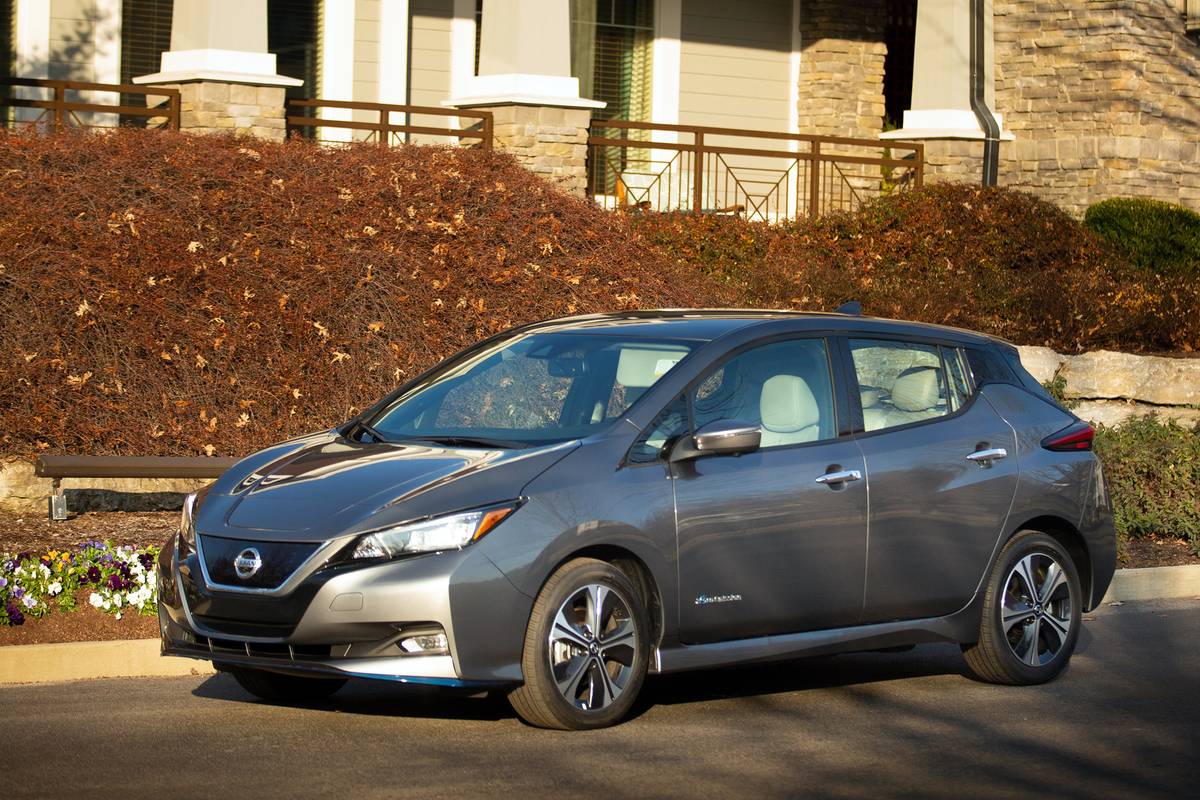2022 Nissan Leaf Prices Fall, More Features Added


The Nissan Leaf was one of the first purely electric vehicles on the market when it debuted for the 2011 model year. Since its arrival, the EV’s paltry 73-mile estimated range has grown into a more respectable 226-mile maximum — but as the Leaf’s range increased, so has the competition. With more automakers bringing EVs to the masses, Nissan has slashed the starting price for the 2022 Leaf by more than $4,000 and added several standard features in a bid to keep it relevant and entice frugal EV buyers.
Money Doesn’t Grow on Trees: 2022 Leaf Price Cut
Nissan announced that the 2022 Leaf will start at $28,375 (all prices include destination). The 2022 model comes at a significant discount over the 2021 Leaf’s starting price of $32,645 and doesn’t account for a federal EV tax credit of up to $7,500. This means some shoppers can buy a new Leaf S at a starting price of less than $21,000. The price drop affects all trim levels, including the top-tier Leaf SL Plus, which is priced some $6,500 less than its 2021 variant.
In addition to slashing prices for the 2022 Leaf, Nissan aims to lure value-minded buyers with added standard convenience and safety features. A quick charge port now comes on all trims along with a portable 240-volt Level 2 charging cable. In lieu of making customers purchase a technology package, Nissan now offers eight additional safety features, including its ProPilot Assist and a 360-degree camera system, standard on the SV Plus model, which starts at $36,375 (down over $5,000 from 2021).
How Does the 2022 Nissan Leaf Stack Up?
The 2022 Leaf will go up against competitors such as the 2022 Chevrolet Bolt EV, which comes with an updated cabin and also gets a price cut compared to the 2021 model. The Bolt EV starts at $31,995 — but unlike Leaf customers, Bolt EV buyers will not be able to take advantage of federal tax credits for the EV as they have expired. This means the Bolt EV’s starting price is $10,000 higher than the Leaf when tax credits are accounted for.
It’s worth noting that the estimated range for the 2022 Bolt is 259 miles, shattering the standard range Leaf’s 149-mile range and even beating the Leaf Plus’ maximum range of 226 miles. The 2022 Bolt EV makes 200 horsepower and 266 pounds-feet of torque while the Leaf Plus models make 214 hp and 250 pounds-feet. The standard-range Leaf falls well below these numbers at 147 hp and 236 pounds-feet.
Trims and Pricing
The 2022 Nissan Leaf is on sale now, and it’s available in the standard-range S and SV trims or extended range S Plus, SV Plus and SL Plus trims. The S and SV models come with a 40-kilowatt-hour battery and 110-kW electric motor delivering an estimated 149-mile range. The extended-range Plus versions come with a 62-kwh battery and 160-kW motor for more generous range numbers. The Nissan S Plus gets 226 miles of range, while the Leaf SV Plus and SL Plus both get 215 miles of estimated range.
- Leaf S: $28,375
- Leaf SV: $29,775
- Leaf S Plus: $33,375
- Leaf SV Plus: $36,375
- Leaf SL Plus: $38,375
More From Cars.com:
- A New Nissan Leaf Brings Mixed Results: 3 Things We Like and 3 We Do Not
- 2017 Chevrolet Bolt EV Review: First Drive
- Which Electric Cars Are Still Eligible for the $7,500 Federal Tax Credit?
- What’s New With Electric Vehicles for 2021?
- More EV News
Related Video:
Cars.com’s Editorial department is your source for automotive news and reviews. In line with Cars.com’s long-standing ethics policy, editors and reviewers don’t accept gifts or free trips from automakers. The Editorial department is independent of Cars.com’s advertising, sales and sponsored content departments.

Former News Editor Jane Ulitskaya joined the Cars.com team in 2021, and her areas of focus included researching and reporting on vehicle pricing, inventory and auto finance trends.
Featured stories




